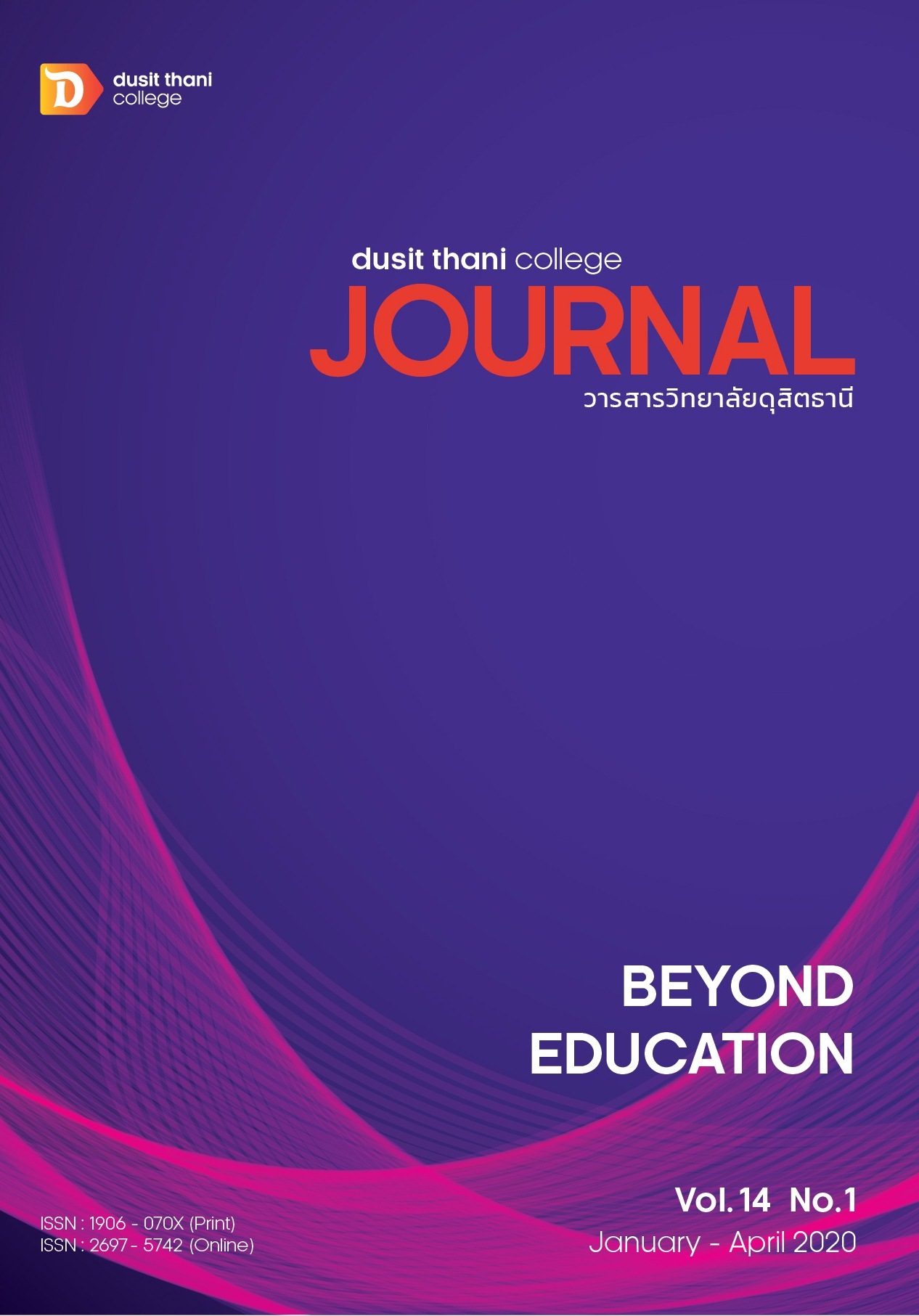สภาพปัจจุบันของการบริหารจัดการทรัพยากรมนุษย์ของสถาบันอุดมศึกษาเอกชน
Main Article Content
บทคัดย่อ
การวิจัยครั้งนี้มีวัตถุประสงค์เพื่อวิเคราะห์สภาพปัจจุบันของการบริหารจัดการทรัพยากรมนุษย์ของสถาบันอุดมศึกษาเอกชน โดยมีกลุ่มตัวอย่าง คือ 1) มหาวิทยาลัยเอกชน ซึ่งมีจำนวนทั้งหมด 31 แห่ง โดยผู้ให้ข้อมูลแบ่งออกเป็น 2 ระดับ คือ (1) ระดับมหาวิทยาลัย ผู้ให้ข้อมูล ได้แก่ อธิการบดี รองอธิการบดีฝ่ายบริหาร คณะกรรมการบริหารงานบุคคลของสถาบันอุดมศึกษาเอกชน และ (2) ระดับคณะ ผู้ให้ข้อมูล ได้แก่ คณบดี รองคณบดีฝ่ายบริหารของคณะต่าง ๆ ที่เปิดสอนภายในสถาบันอุดมศึกษาเอกชน จากกลุ่มสาขาที่แตกต่างกัน ได้แก่ กลุ่มสาขาวิทยาศาสตร์และเทคโนโลยี กลุ่มสาขาวิทยาศาสตร์สุขภาพ กลุ่มสาขาสังคมศาสตร์และมนุษยศาสตร์ รวมกลุ่มตัวอย่างทั้งหมด 90 คน เครื่องมือที่ใช้ในการวิจัย ประกอบด้วย แบบวิเคราะห์สาระ แบบสอบถาม วิเคราะห์ข้อมูลด้วยการวิเคราะห์ค่าความถี่ ค่าร้อยละ ค่าเฉลี่ย ค่าเบี่ยงเบนมาตรฐาน ซึ่งผลการศึกษาสรุปได้ดังนี้ ผู้ให้ข้อมูลในการศึกษาครั้งนี้ส่วนใหญ่เป็นเพศชาย มีอายุ 40 - 49 ปี วุฒิการศึกษาสูงสุดระดับปริญญาโท ไม่มีตำแหน่งทางวิชาการ มีระยะเวลาปฏิบัติงาน 10-14 ปี สังกัดอยู่ในสถาบันอุดมศึกษาเอกชนขนาดใหญ่ ในเขตกรุงเทพมหานคร ในระดับคณะและสังกัดกลุ่มสังคมศาสตร์และมนุษยศาสตร์ สำหรับข้อมูลเกี่ยวกับสภาพปัจจุบันของการบริหารจัดการทรัพยากรมนุษย์ของสถาบันอุดมศึกษาเอกชน ภาพรวมอยู่ในระดับปานกลางและหากพิจารณาตามรายด้านของกระบวนการบริหารจัดการทรัพยากรมนุษย์ทั้ง 6 ด้าน พบว่า สถาบันอุดมศึกษาเอกชนให้ความสำคัญในระดับที่มากในด้านการฝึกอบรมและการพัฒนาทรัพยากรมนุษย์ สถาบันอุดมศึกษาเอกชนให้ความสำคัญในระดับปานกลางในด้านการมีส่วนร่วมในงานและการสร้างความผูกพันในองค์กร ด้านการวางแผนทรัพยากรมนุษย์หรือการวางแผนกำลังคน ด้านการประเมินผลการปฏิบัติงาน ด้านการสรรหาและการคัดเลือก และด้านการบำรุงรักษาทรัพยากรมนุษย์หรือการบริหารค่าตอบแทน ตามลำดับ
Article Details
นโยบายการพิจารณากลั่นกรองบทความ
- บทความวิจัยและบทความวิชาการทุกเรื่องที่จะได้รับการตีพิมพ์ต้องผ่านการพิจารณากลั่นกรองโดยผู้ทรงคุณวุฒิ (Peer Review) ในสาขาที่เกี่ยวข้อง จำนวน 3 ท่าน/บทความ
- บทความ ข้อความ ภาพประกอบและตารางประกอบที่ลงตีพิมพ์ในวารสารเป็นความคิดเห็นส่วนตัวของผู้เขียน กองบรรณาธิการไม่จำเป็นต้องเห็นด้วยเสมอไป และไม่มีส่วนรับผิดชอบใด ๆ ถือเป็นความรับผิดชอบของผู้เขียนแต่เพียงผู้เดียว
- บทความที่จะได้รับการตีพิมพ์จะต้องไม่เคยตีพิมพ์ เผยแพร่ที่ใดมาก่อน และไม่อยู่ระหว่างการพิจารณาของวารสารฉบับอื่น หากตรวจสอบพบว่ามีการตีพิมพ์ซ้ำซ้อน ถือเป็นความรับผิดชอบของผู้เขียนแต่เพียงผู้เดียว
- บทความใดที่ผู้อ่านเห็นว่าได้มีการลอกเลียนหรือแอบอ้างโดยปราศจากการอ้างอิง หรือทำให้เข้าใจผิดว่าเป็นผลงานของผู้เขียน กรุณาแจ้งให้กองบรรณาธิการวารสารทราบจะเป็นพระคุณยิ่ง
เอกสารอ้างอิง
2. Carr, et.al (1996). Management the change process. Warszawa, Poland: Wydawnictwo Naukowe PWN.
3. Castetter, William B. (1976). The Personnel Function in Educational Administration.
2nd ed. New York: Macmillan.
4. Chuaekeaw, Phimonphan. (2011). Human resource management. Bangkok: Bangkok University Press.
5. Daft, R. & Marcic, D. (2013). Management: The new workplace. 8th ed. Canada: South-Western Cengage Learning.
6. Dessler, G. (2005). Human Resource Management. 10th ed., Prentice Hall, Upper Saddle River.
7. Dessler, G. (2009). Fundamentals of Human Resource Management: Content,
Competencies and Applications. New Jersey: Pearson Education.
8. Mondy, R. W., Noe, R. M. & Premeaux, S. R. (1999). Human Resource Management. Upper saddle river NJ: Simon and Schuster Company.
9. Office of the Higher Education Commission Ministry of Education. (2009). 15-year long-term higher education framework, no. 2 (2008-2022). Bangkok.
10. Office of the Higher Education Commission. (2013). The 11th higher education development plan (2012-2016). Bangkok: Office of the Higher Education Commission.
11. Office of the Higher Education Commission. (2015). Human resource manpower planning, higher education. Personnel Standards Manual Office of Personnel Competency Promotion and Development.
12. Office of the Higher Education Commission Ministry of Education. (2016). Access information at http://www.mua.go.th/ohec/.
13. Pongsiri, Nattawut. (2012). Article on Strategic Direction of Human Resources Management
of the Bank of Thailand in preparation for AEC. Journal of HR Intelligence, 7(1), January - June 2012: Print At Me Company (Thailand) Limited.
14. Samantriporn, Saowanee. (2017). Human resource management in the business sector in the changing age. Bangkok Thonburi University, 6(1), January - June 2017.
15. Suitkawatin, Thaweesak. (2008). Strategic Human Resource Management. Bangkok: TPN Press.
16. Suwetwatthanakun, Chokchai and Kaewnuch, Kanokkan. (2012). Alternatives - Survival from the economic crisis of human capital activities in the tourism and service industry according to the sufficiency economy philosophy: Human capital management and development activities. Bangkok: National Institute of Development Administration.
17. Tangdamnoensawat, Supaporn. (2007). The development of diagnostic tools for private higher education institutions in Thailand. Ph.D. Thesis, Faculty of Education, Chulalongkorn University.
18. Wetchayanont, Nisadarn. (2008). A new dimension in human capital management.
Bangkok: Graphic Systems Company Limited.


